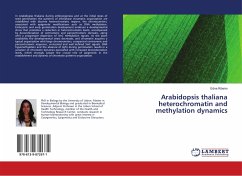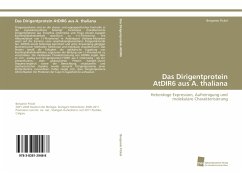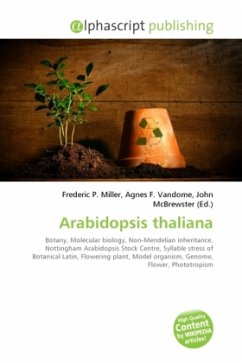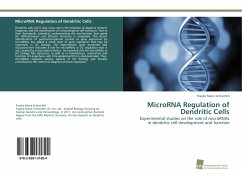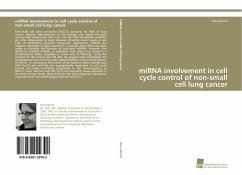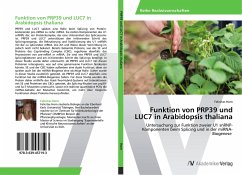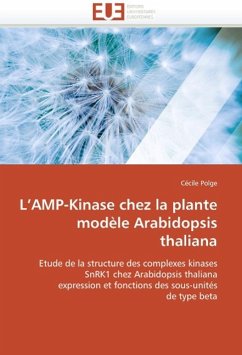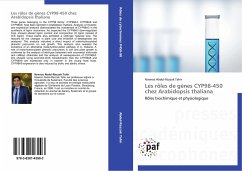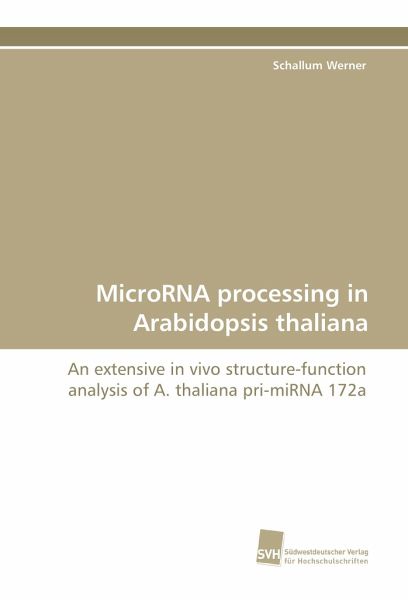
MicroRNA processing in Arabidopsis thaliana
An extensive in vivo structure-function analysis of A. thaliana pri-miRNA 172a
Versandkostenfrei!
Versandfertig in 6-10 Tagen
46,99 €
inkl. MwSt.

PAYBACK Punkte
23 °P sammeln!
Plant microRNAs (miRNAs) are processed by the RNase III-like enzyme DICER-LIKE1, the double-stranded RNA-binding protein HYPONASTIC LEAVES1 and the zinc finger protein SERRATE. Together, they excise a miRNA/miRNA_ duplex with a 2 nucleotide 3' overhang from the primary miRNA (pri-miRNA) transcript. pri-miRNAs include a partially self-complementary foldback, which gives rise to the mature miRNA. In animals, pri-miRNAs are very similar, with a stereotypic position of the miRNA within the foldback. Accordingly, rules for miRNA excision from the precursor are quite simple in animals. In contrast, ...
Plant microRNAs (miRNAs) are processed by the RNase III-like enzyme DICER-LIKE1, the double-stranded RNA-binding protein HYPONASTIC LEAVES1 and the zinc finger protein SERRATE. Together, they excise a miRNA/miRNA_ duplex with a 2 nucleotide 3' overhang from the primary miRNA (pri-miRNA) transcript. pri-miRNAs include a partially self-complementary foldback, which gives rise to the mature miRNA. In animals, pri-miRNAs are very similar, with a stereotypic position of the miRNA within the foldback. Accordingly, rules for miRNA excision from the precursor are quite simple in animals. In contrast, how miRNA sequences are recognized in the structurally much more diverse foldbacks of plants is unknown. We have performed an extensive in vivo structure-function analysis of Arabidopsis thaliana pri-miRNA 172a. A junction of single-stranded and double-stranded RNA 15 nucleotides proximal from the miRNA duplex appears to be essential for accurate miR172a processing. This attribute is found in several other but not all plant miRNA foldbacks. In addition, we engineered de novo a functional minimal miRNA precursor.



